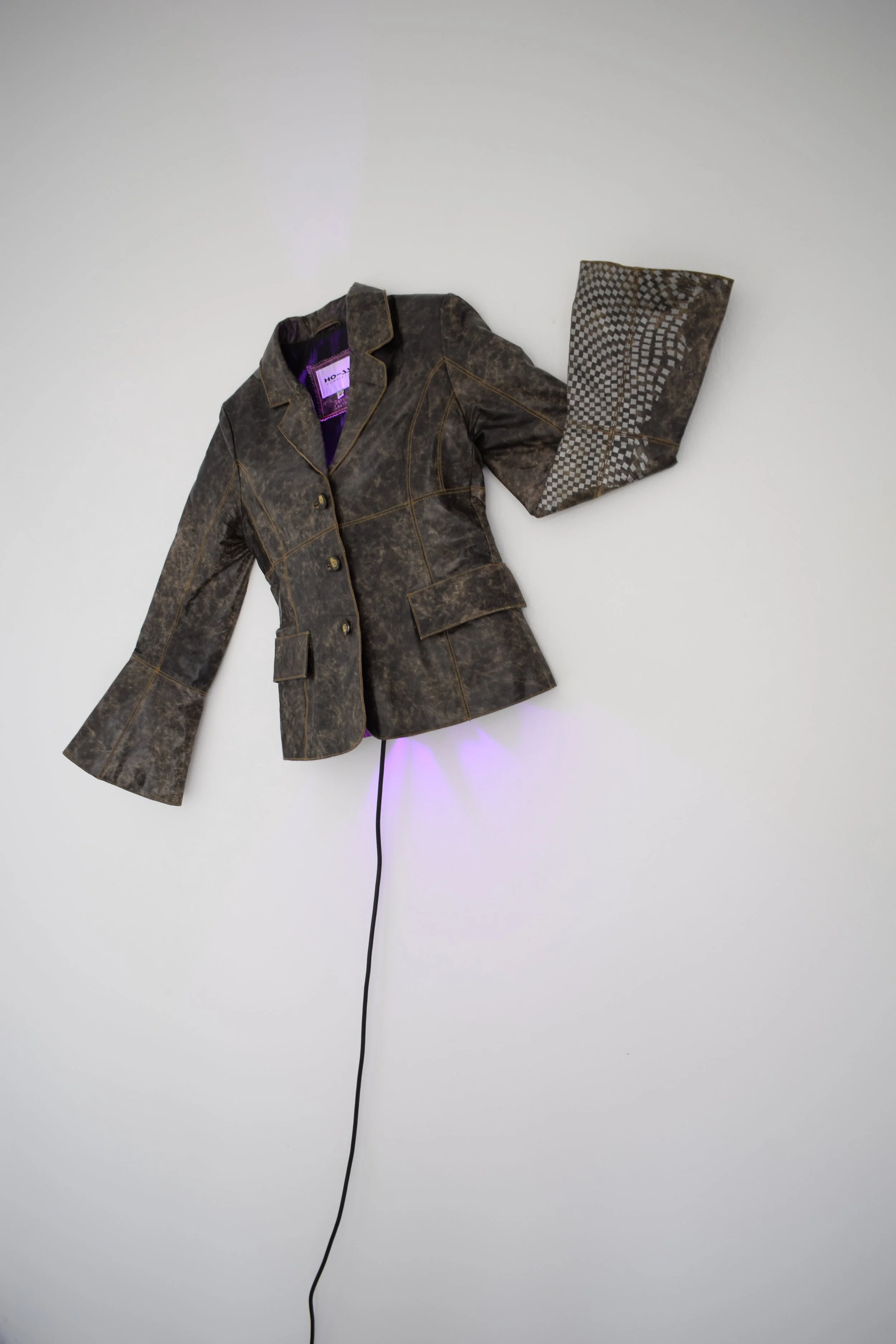and their eyes became sharper, 2021
Mixed media, solo show at MARTINETZ
Fuck airbnb or: the exhibition as a camp
Used mattresses. A leather jacket by the fashion label Homeless. Posters taken from demonstrations protesting the housing shortage in L.A. during the Corona year of 2020. A photograph of an urban tent camp. Selma Gültoprak uses everyday materials in her installations – objects, images, documents, sounds, that she comes across during her extensive research either in her home town of Cologne or when travelling. Found objects that she reworks or places in new contexts as ready mades in her installations. On the other hand, and this characterises the core of her work, her actual material is everyday social life: the personal and social togetherness and opposition between power and powerlessness, resignation and self-empowerment. Her artistic stance is that of an observer who is just as interested in individual experiences as in the social conditions to which the designs of life react. It is no coincidence that the public space – as a field of tension in which the private and the public meet, become visible and are constantly renegotiated – is the preferred location of her interventions. By actively intervening in the reality of life, they speak of the mutability of circumstances. In this sense, they contain a utopian moment, broken by ironic humour.
Even the objects in Selma Gültoprak’s second solo exhibition at the gallery Martinetz, and their eyes became sharper, still refer to their original context. It could not be further from the lives of art gallery visitors: homelessness. For quite some time, Selma Gültoprak has been concerned with the rising and increasingly visible housing shortage in the USA, as well as in Europe. She has looked at, researched and interviewed those affected, activists and researchers. In doing so, she did not meet with ‘victims’, but with people who look at the circumstances with a sharp eye, organise themselves and develop their own survival strategies. Equity is a prerequisite of Selma Gültoprak’s work. The artistic challenge, however, lies in finding the aesthetic form.
Whoever enters the gallery space will, quite literally, be walking across a ground of hard facts. Protest signs that were used during demonstrations against the housing shortage are embedded into the floor with cast resin like intarsia. After the exhibition, they will be painted over and permanently inscribed into the palimpsest of the gallery floor as a ‘lost work’. But now there is a disturbing object with the inscription ‘Fuck Airbnb’ on the floor. It consists of old matresses, gutted and patchworked together to form a large heart with a look of camouflage. In general, many things are reminiscent of a camp. Nevertheless, there are house numbers, which, however, do not mark any living space, but as a binary system of ones and zeros refer only to themselves and into the void. A soundtrack is also provided: a collage of interview fragments with affected people, organisations and experts becomes a reference to a podcast produced by the L.A. scene.
The ‘Crenshaw Cowboy’ is one of the protagonists of the exhibition, he paints new signs with lines of text every day from his base camp on Crenshaw Boulevard. A suspiciously, cutely embellished imitation quotes him as: my mission was to educate you about your creative mind. Every word tells. As does the edition of finest cotton socks produced by Selma Gültoprak for the exhibition with the inscription White Gold – that’s what homeless people call the coveted everyday object: fresh socks. When you buy an edition, a second pair goes to an unhoused person. Can we buy our way out? Anyway, it somehow feels good. And too easy. During the pandemic, wild camps grew in Venice Beach right next to the beautiful rich people’s jogging paths. In Cologne, new camps sprang up under the Rhine’s bridges, in the wooded area around Lake Fühlingen and in the recesses of the Lockdown-orphaned Hohe Straße. In Berlin, thousands are demonstrating against the housing shortage. You can see it. and their eyes became sharper.
Melanie Weidemüller
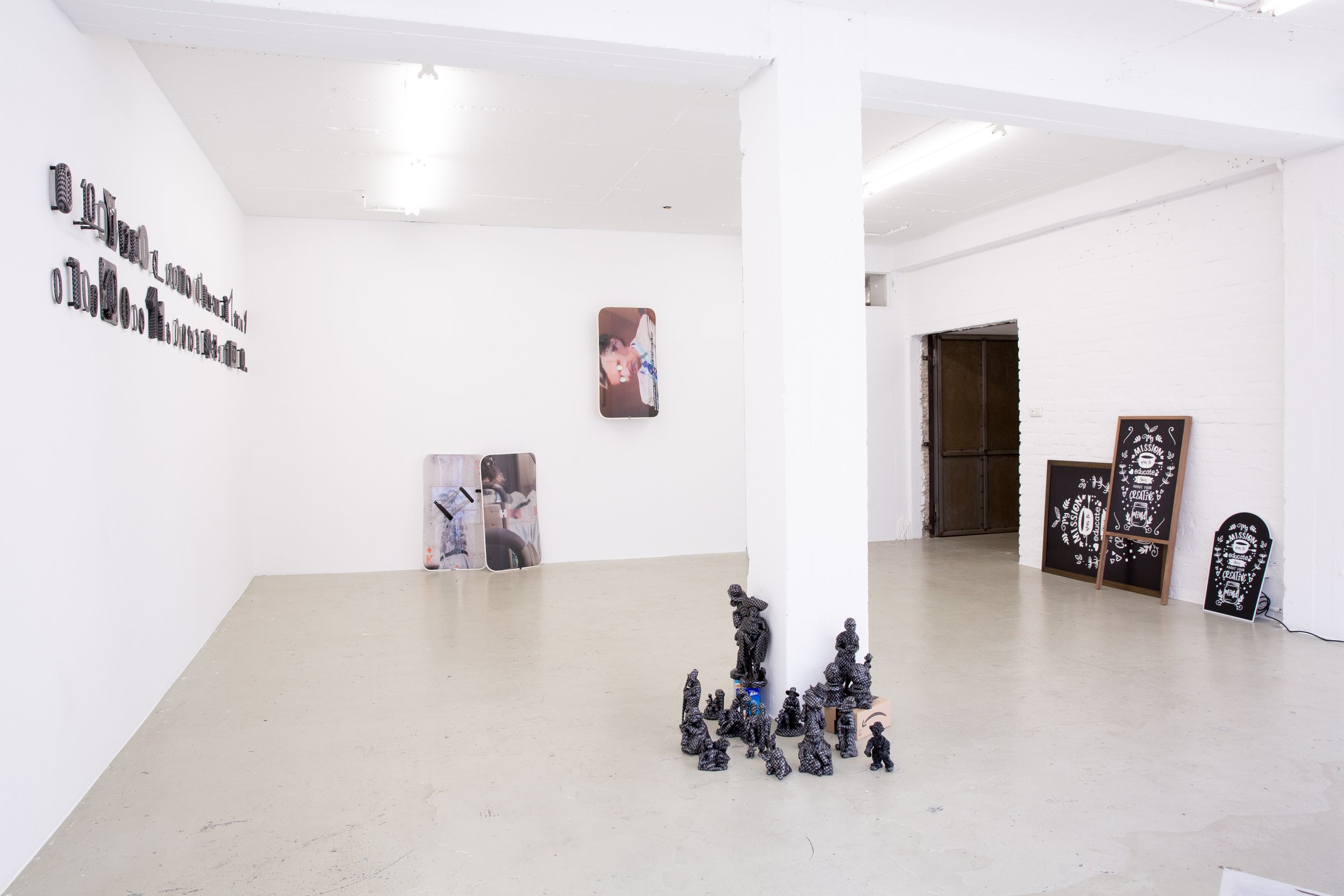
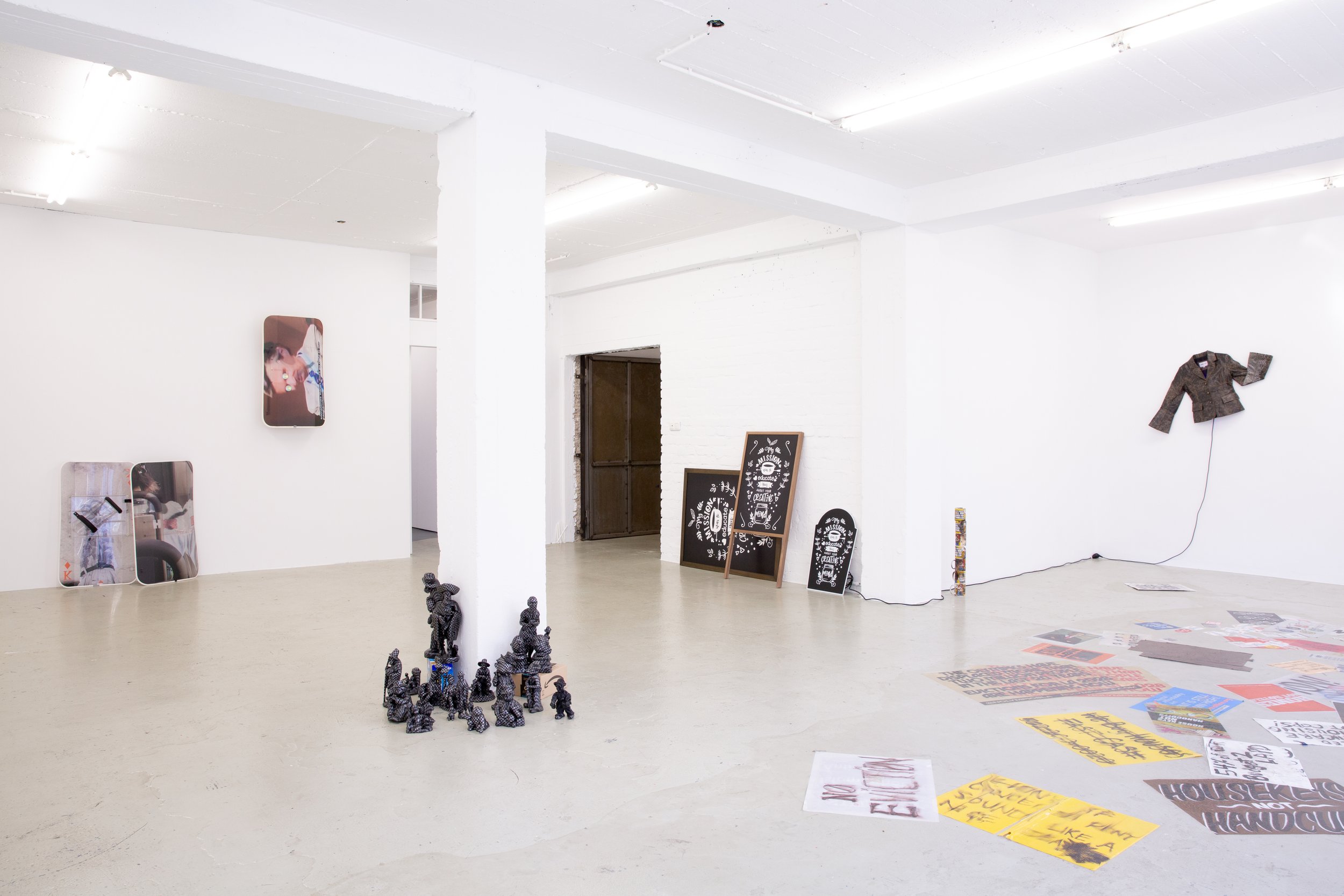
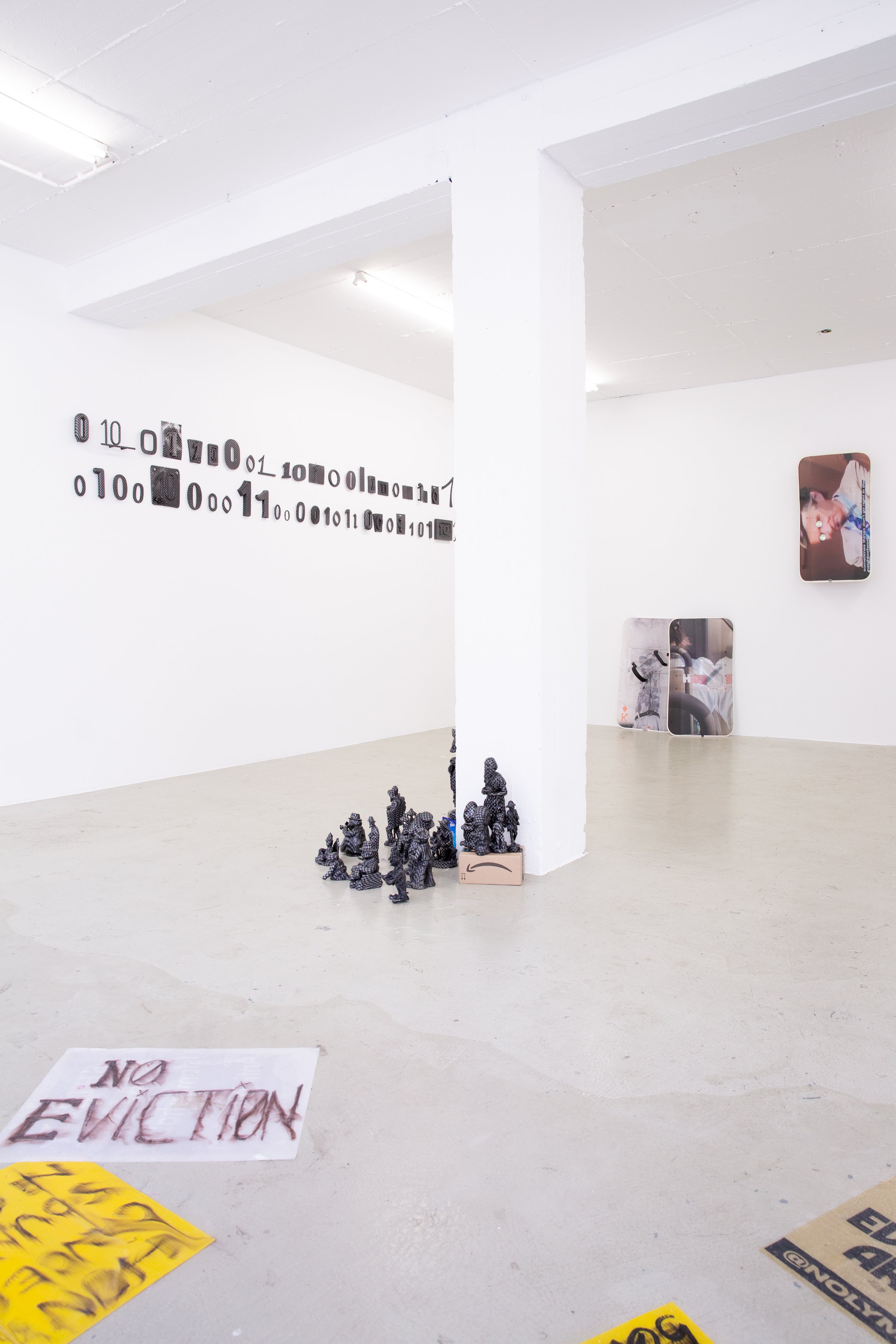
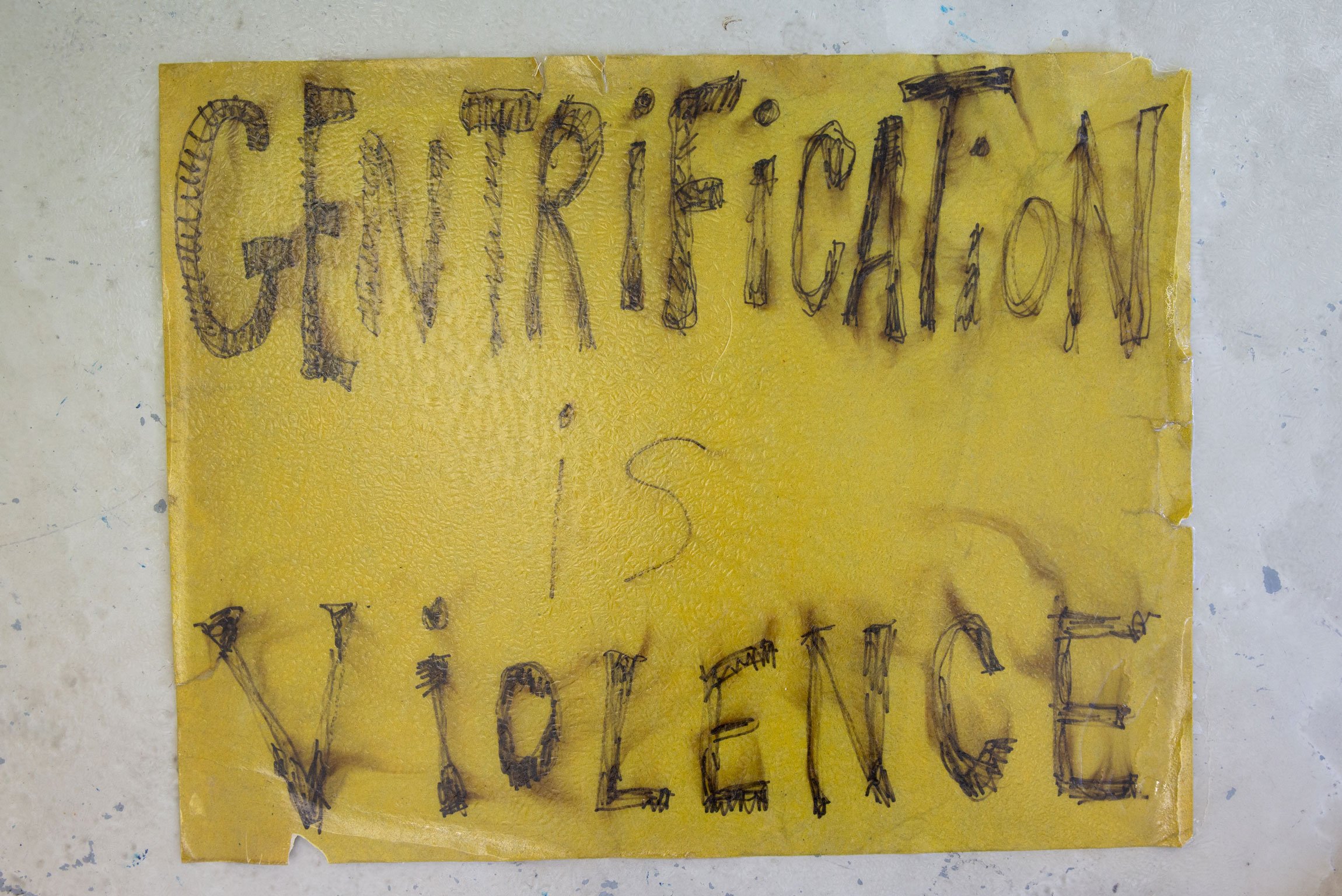
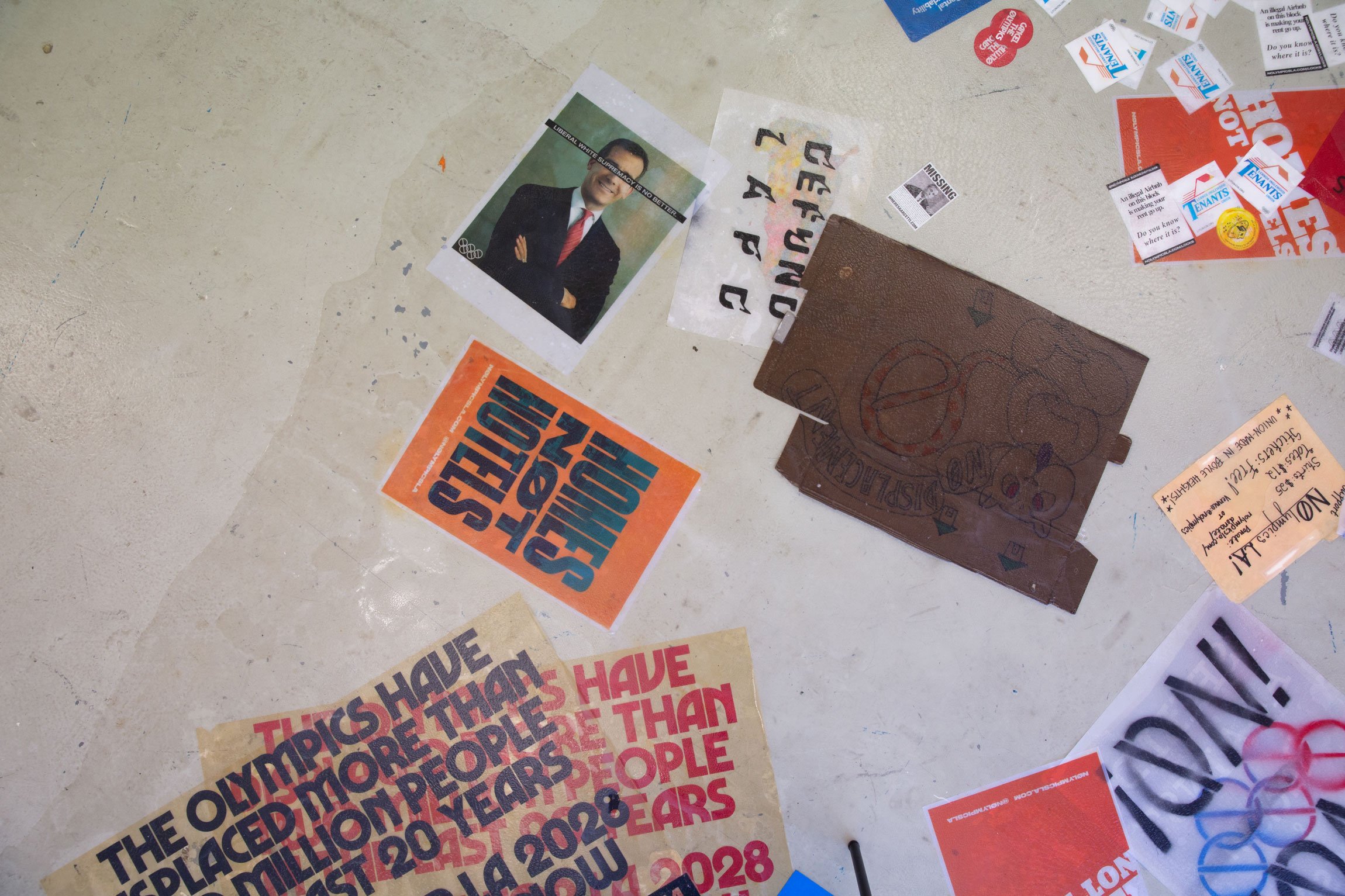
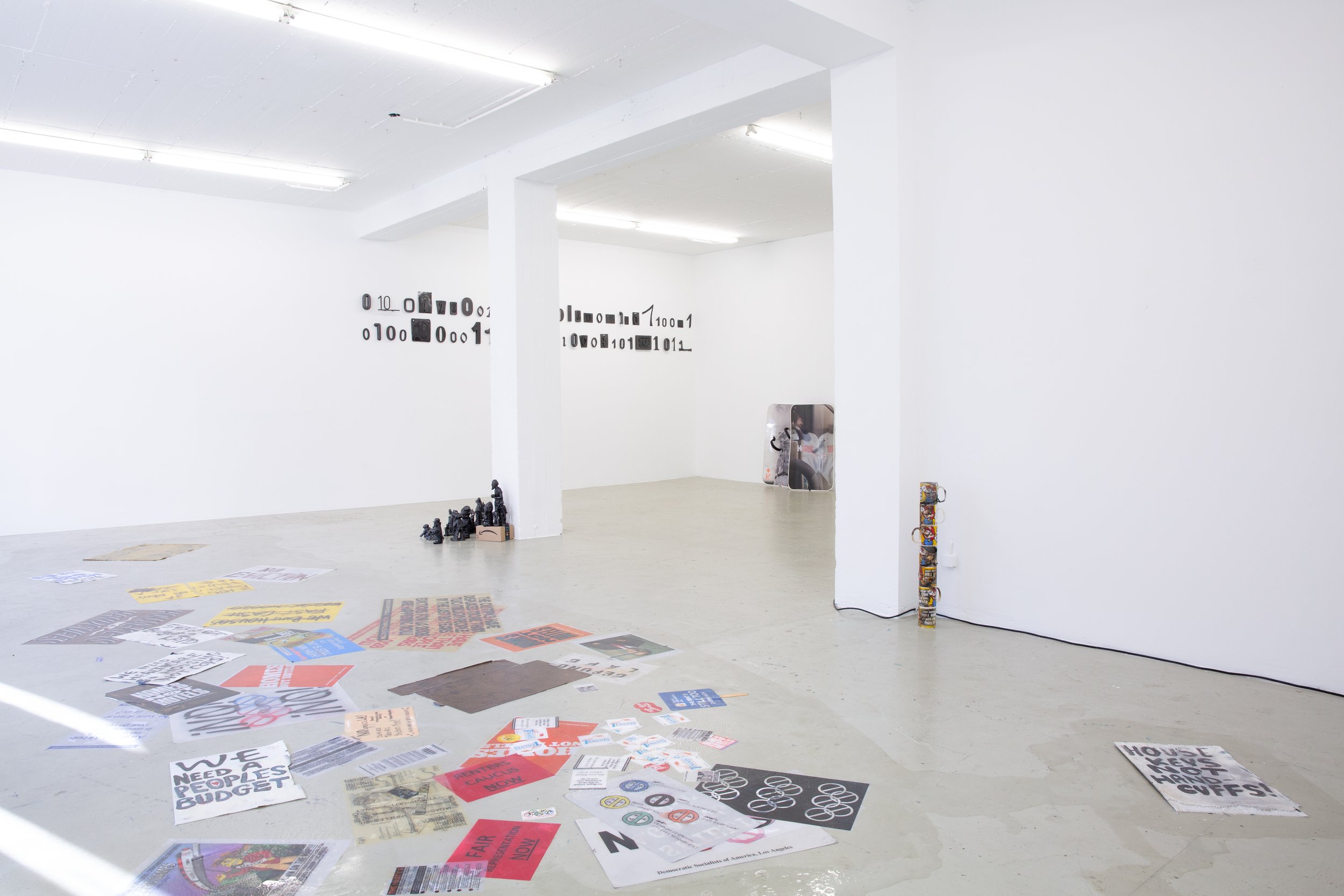
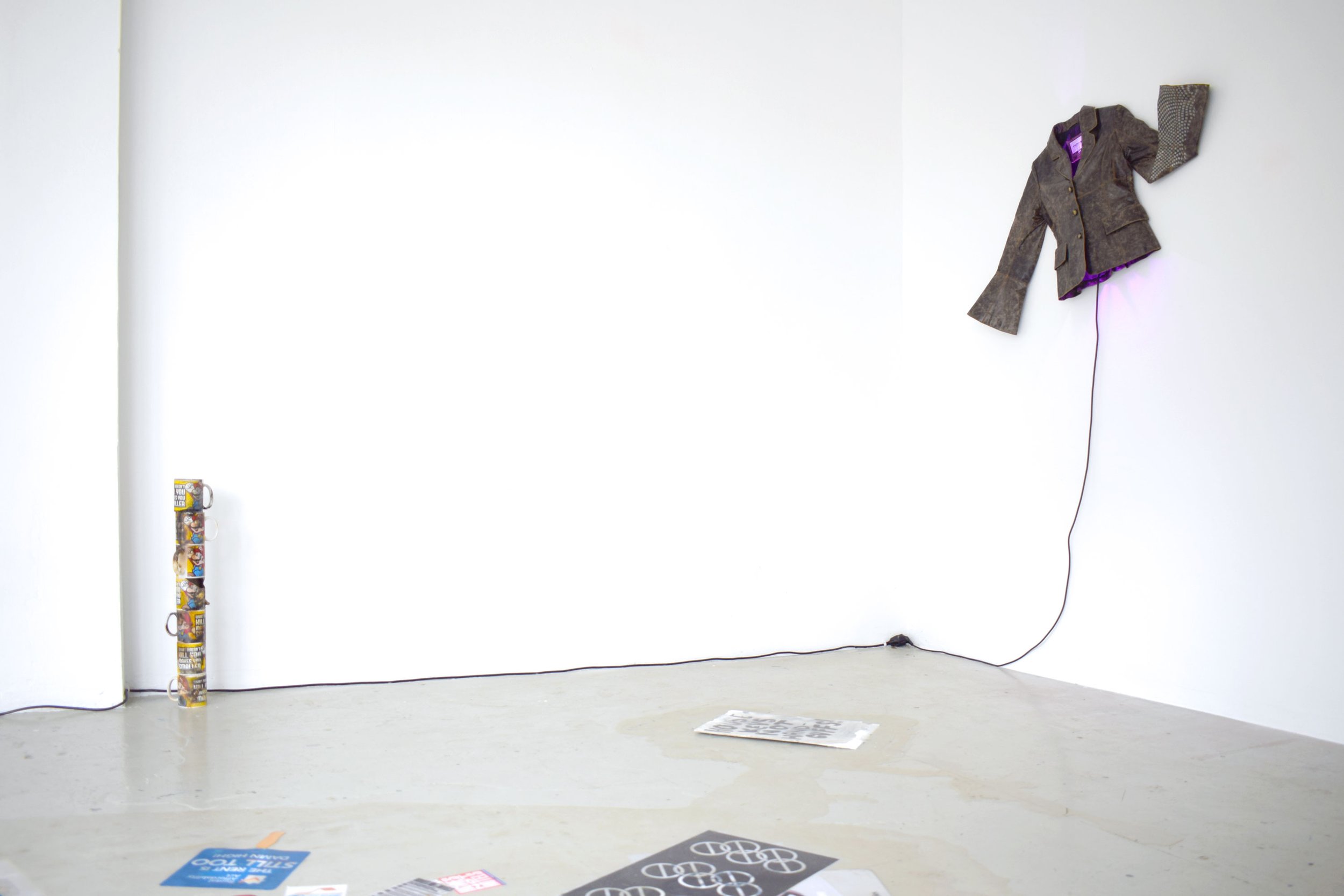
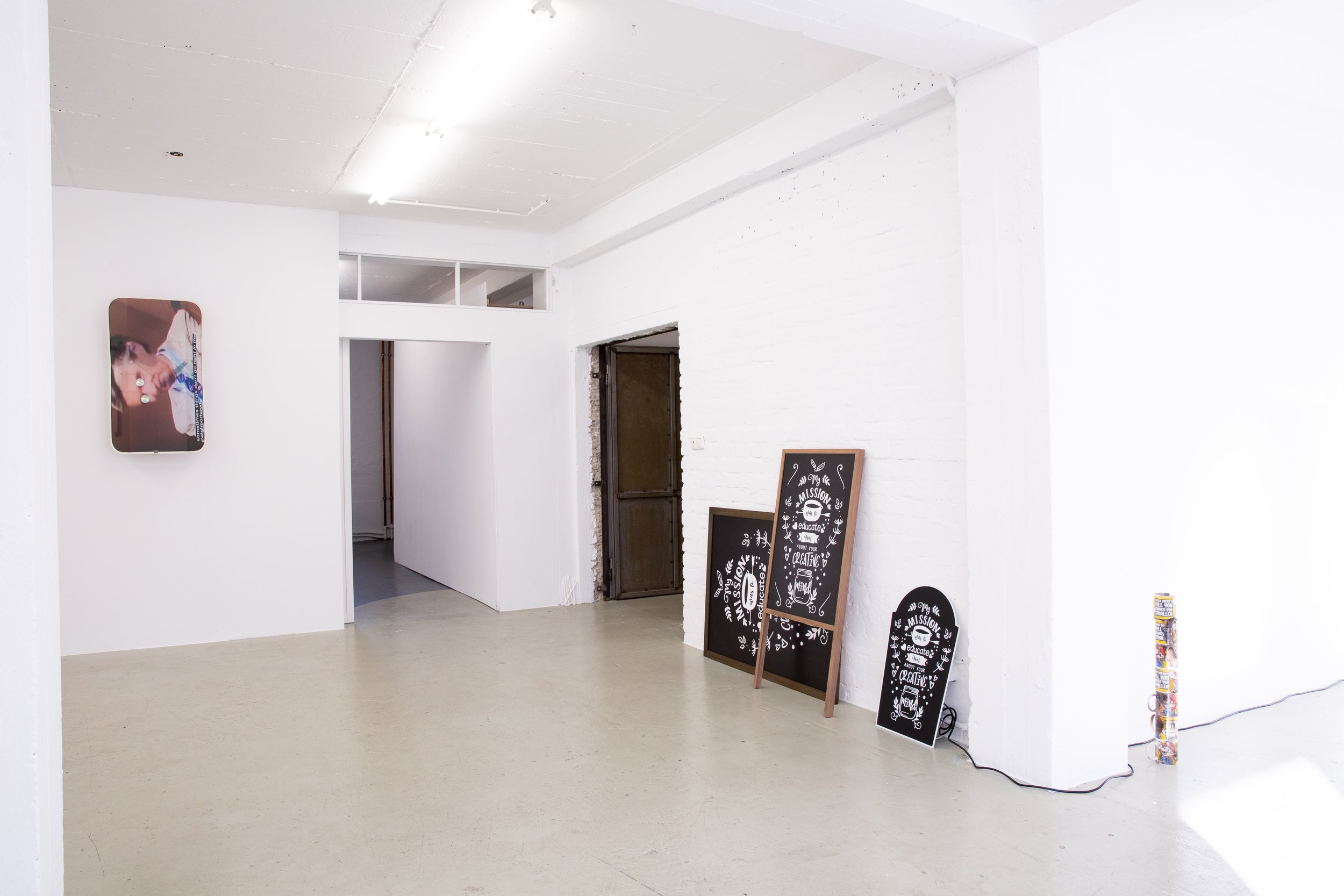
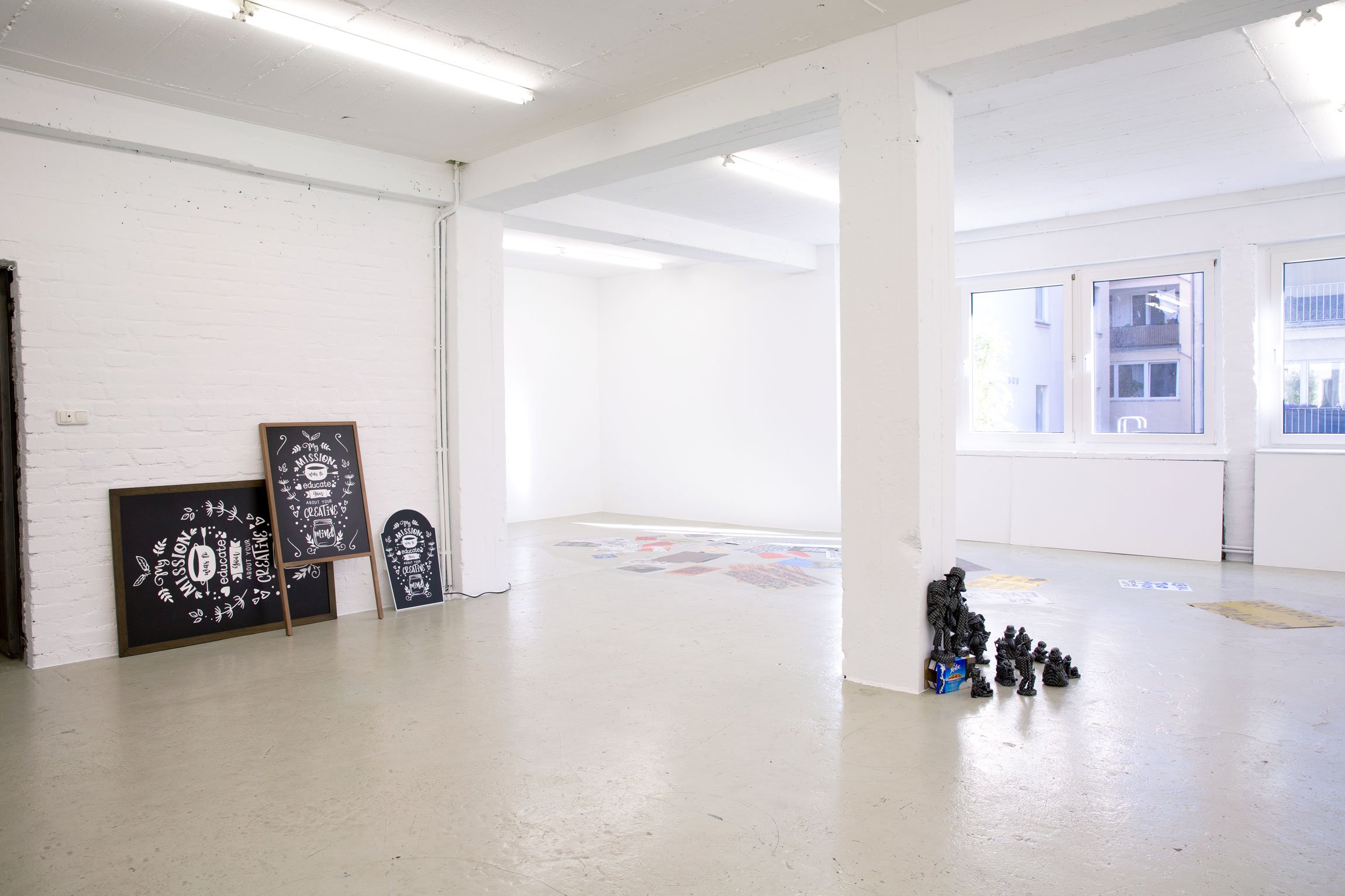
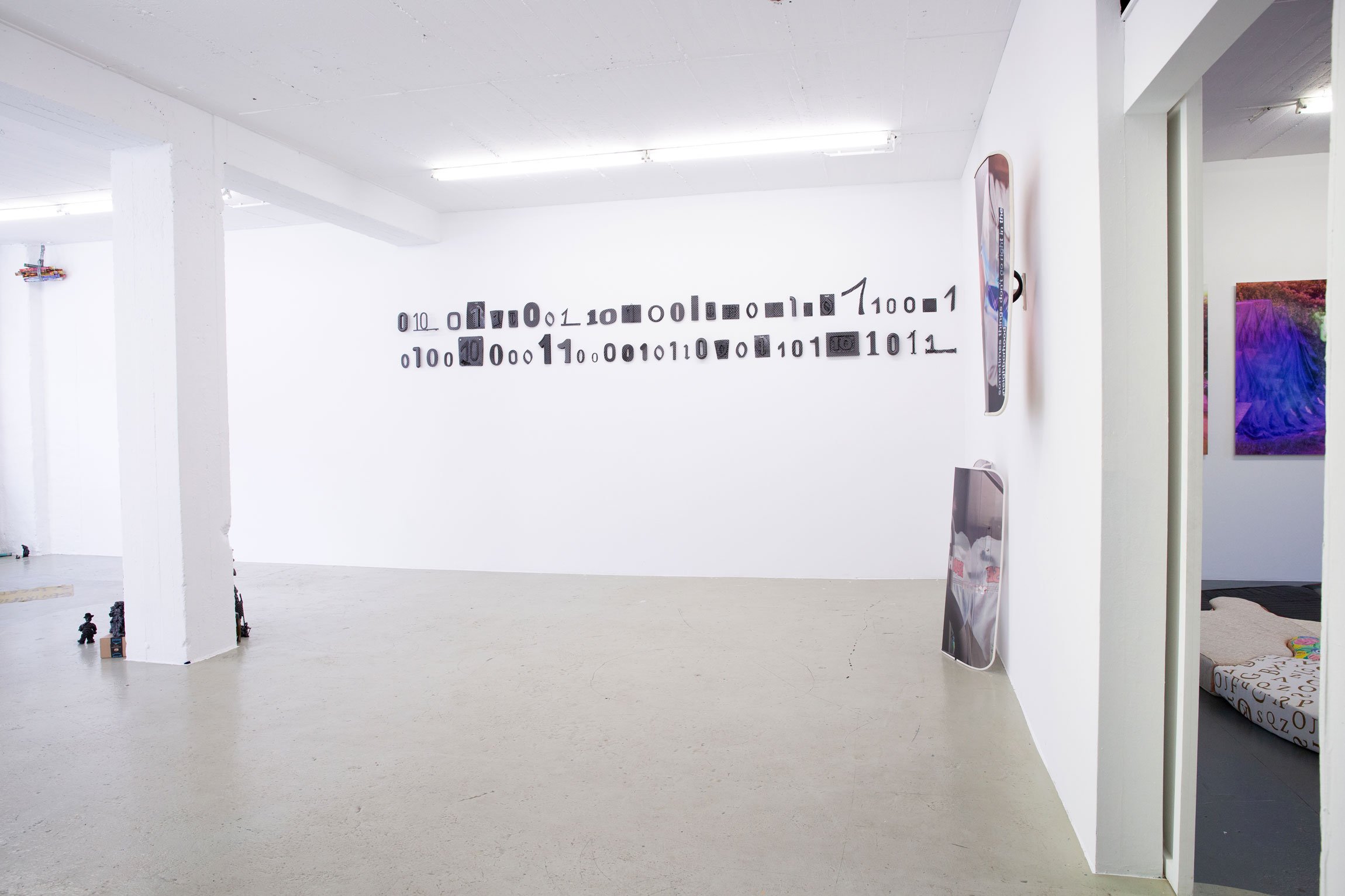
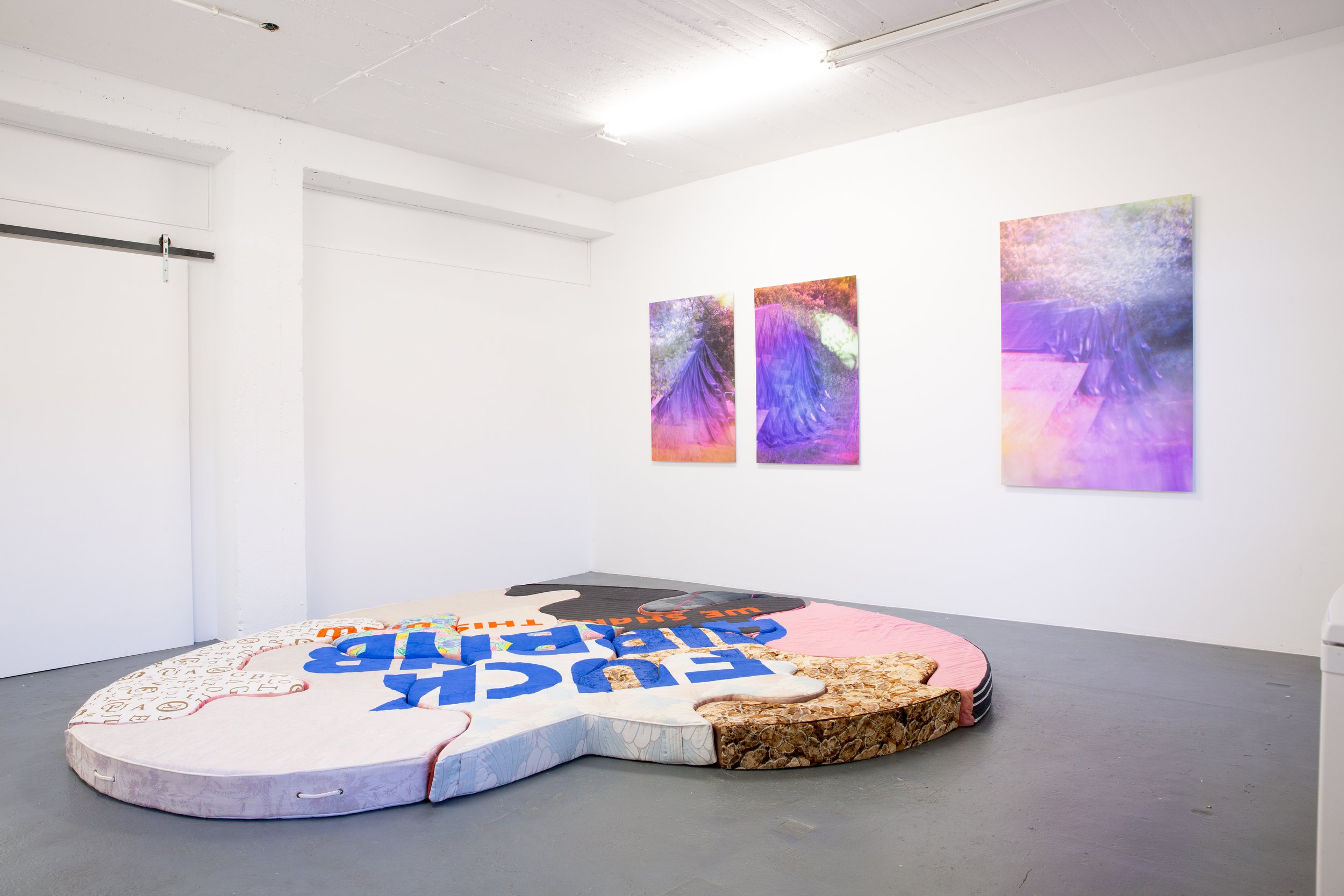
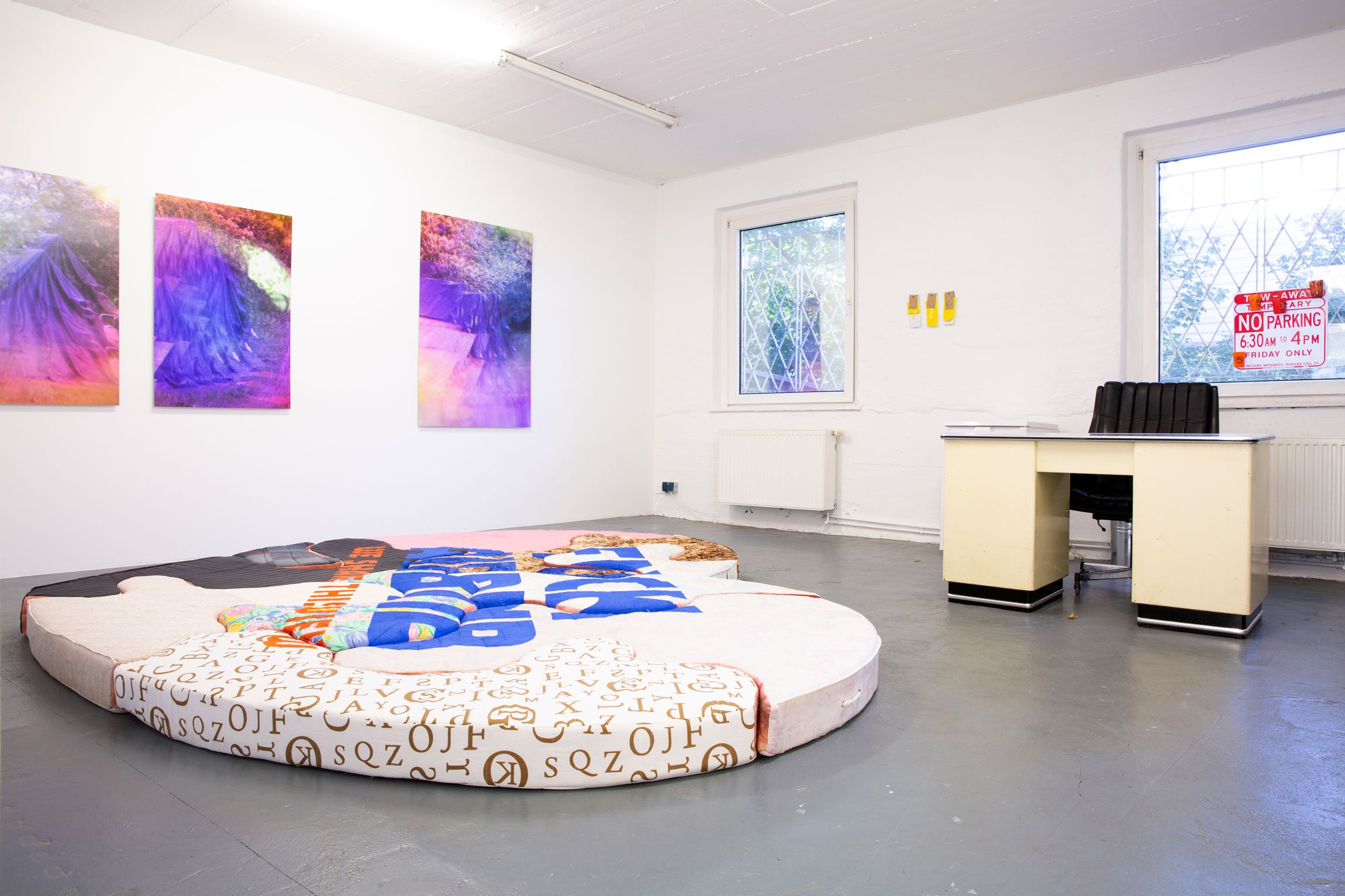
Photo: liebschuh
Installation view: Martinetz, 2021









